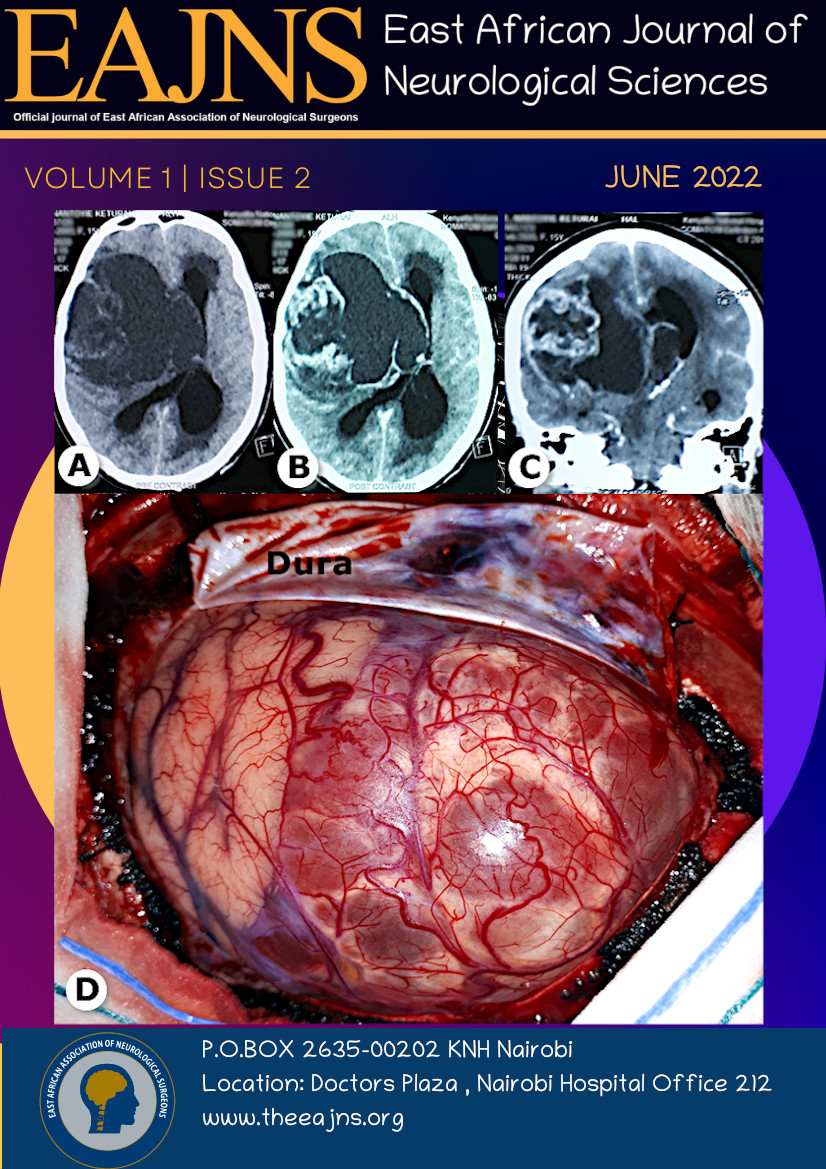Main Article Content
The effect of cerebrospinal fluid’s biochemical and cellular properties on ventriculo-peritoneal shunt survival
Abstract
Background: The burden of hydrocephalus in our region is huge. Ventriculoperitoneal (VP)
shunting is the main mode of treatment of hydrocephalus. These shunts frequently
malfunction, with shunt blockage being the commonest cause of shunt failure. The
biochemical and cellular properties of CSF are hypothesized to contribute to shunt blockage.
This study aimed to demonstrate the impact of these CSF properties on shunt survival.
Materials and methods: This was a prospective cohort study. Patients were recruited into
the study following VP shunt surgery for hydrocephalus. Based on their baseline CSF
biochemical and cellular properties, the patients were divided into two groups; those with
normal and those with abnormal CSF biochemistry and cellularity. Patients were then followed
up in the neurosurgical clinics for a period of 3months during which shunt function was
assessed clinically. This data was then entered to the statistical package for social sciences
(IBM SPSS statistics 25.0) for data analysis. Results: A total of 82 patients met the inclusion
criteria and were recruited into the study. Forty-six (56.1%) were male while 36(43.9%) of
them were female. The mean age was 15.5 months (SD 23.4 months). Majority (82.9%) of the
patients had congenital hydrocephalus with Dandy walker malformation being the most
common congenital anomaly seen. Most patients (52.44%) had normal CSF proteins while
the remainder had elevated CSF proteins. Majority of the patients had reduced levels of CSF
glucose at 65.9%. The CSF cell count was normal for most of the patients at 86.6%. Elevated
CSF protein concentration was associated with an increased likelihood of ventriculoperitoneal
shunt failure by 8.7 times compared to the patients with normal CSF protein concentration.
Reduced CSF glucose concentration was associated was also found to increase the likelihood
of shunt failure in this study. There was no correlation between the CSF cell count and the
likelihood of shunt failure.







